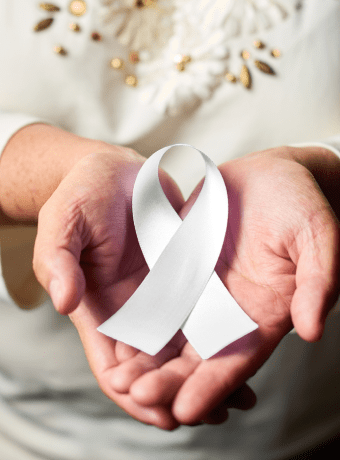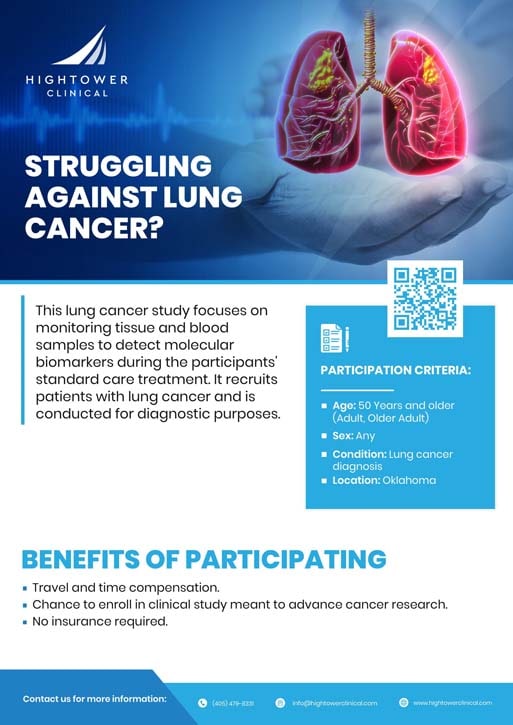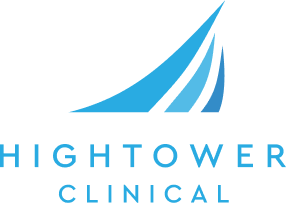Common imaging tests include chest X-rays, CT scans, and PET scans to check for tumors in the lungs.
Lung cancer diagnosis biorepository clinical trials in Oklahoma City, OK
Participate in our lung cancer diagnosis biorepository clinical trials and help us discover a better treatment option for patients with cancer.
Enroll Now
Combating Lung Cancer?
You are eligible to participate in our lung cancer diagnosis biorepository clinical trials.
Lung cancer is an uncontrolled growth of cancerous mass in the lungs. While several treatment options exist, there remains a need for more effective therapies that can improve the quality of life for individuals affected by this condition.
Hightower aims to fill the void in cancer therapy a bit more by conducting lung cancer diagnosis biorepository clinical trials in Oklahoma City, OK. The healthcare professionals will conduct blood test for lung cancer screening time after time from patients who will undergo a routine, standard-of-care screening Low-Dose Computed Tomography (LDCT).
*Participating in the clinical trial is completely free and your choice.
*To get started, simply fill out the form, and someone from our research team will reach out to check if you qualify for the study.
About Lung Cancer Diagnosis Biorepository Clinical Trials.
In partnership with the renowned pharmaceutical organizations, Hightower is conducting Lung cancer diagnosis biorepository clinical trials in Oklahoma City, OK. In a prospective, multi-center, observational study, the healthcare professionals will screen blood for possible biomarkers for early lung cancer detection.
This lung cancer diagnosis biorepository clinical trial aims to enroll participants in the US for people aged around 50 years and older. The participants should have a smoking history of 20 years. This study is a prospective multi-center observational study to validate a blood-based test for the early detection of lung cancer by collecting blood samples from high-risk participants.
All study procedures, including the study-related treatment and the investigational drug, are provided at no cost, and no insurance is needed to join.
The study doctor will guide you through each step of the clinical trial, addressing any questions you may have about the treatment before you decide to participate.
Lung Cancer Research: What to Expect?
Once you agree to join our study, you’ll be asked to sign an Informed Consent Form that gives you detailed information about the study. Our research team will walk you through the process and explain your role in the trial. We encourage you to ask any questions before deciding whether to participate or opt out of the study.
After signing the consent form and getting your questions answered, you will enter a regular blood sampling for biomarker profiling.
Participants who give informed consent and meet the requirements will have their blood drawn and sent for processing and testing.
*All study-related care is free, and expert doctors will perform detailed physical exams and assessments throughout the study.

Age
50 Years and older (Adult, Older Adult)
Gender
All
Condition
Lung cancer diagnosis
Current Status
Recruiting
What Happens in Lung Cancer?
Lung cancer occurs when abnormal cells in the lungs grow uncontrollably, forming tumors that can interfere with normal lung function and potentially spread to other parts of the body.
Complications:
- Breathing difficulties: Tumors can block airways, making it harder to breathe and leading to frequent shortness of breath.
- Metastasis: Lung cancer can spread to other organs, such as the brain, bones, or liver, causing further complications.
- Fluid buildup: Lung cancer can cause fluid accumulation in the chest, compressing the lungs and making it difficult to breathe.
Symptoms:
- Persistent cough: A continuous cough that worsens over time is mostly one of the earliest symptoms of lung cancer.
- Chest pain: Sharp or aching pain in the chest that may get worse with deep breaths, coughing, or laughing.
- Shortness of breath: As tumors grow and block airways, difficulty breathing becomes more frequent.
- Fatigue and weakness: Lung cancer can cause extreme tiredness and loss of energy, even with little physical activity.
- Unexplained weight loss: A sudden and unintended drop in weight without a clear reason may signal lung cancer.
Frequently Asked Questions
Can blood tests detect lung cancer?
Blood tests alone cannot diagnose lung cancer but may help detect certain biomarkers related to the disease.
How can early-stage lung cancer be detected?
Early-stage lung cancer is usually detected through low-dose CT scans, especially in high-risk individuals like smokers.
What happens during Lung Cancer Diagnosis clinical trials?
Participants in lung cancer diagnosis trials typically undergo tests like imaging or blood biomarker analysis to help identify cancer earlier.
Why participate in Lung Cancer Screening clinical trials?
Participating in screening trials can lead to earlier detection, which improves treatment outcomes and may contribute to advancements in lung cancer research.




